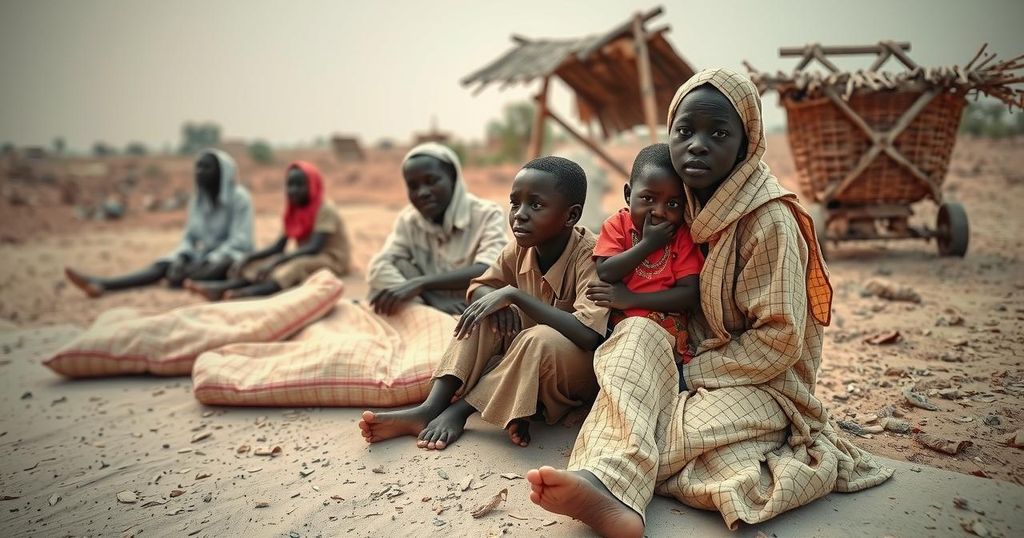Sudan is experiencing a worsening famine crisis due to a 20-month civil war, with 24.6 million people in dire need of food. Famine has spread to five regions, and the UN warns of a potential greater catastrophe. Recent reports indicate significant agricultural disruption stemming from hostilities. The Sudanese military government has halted cooperation with the UN-linked Famine Review Committee, citing reliability issues with its reports.
Experts have declared that Sudan is descending deeper into a severe famine crisis, exacerbated by the ongoing civil war that has lasted for over 20 months. A recent report indicated that famine conditions have extended to five regions, impacting approximately 24.6 million people, or roughly half the country’s population, who are in dire need of food assistance. The humanitarian situation has been further complicated by persistent attempts at mediation between the Sudanese Army and the paramilitary Rapid Support Forces (RSF), which remain unsuccessful.
The civil unrest originated from a coup in 2021, which subsequently ignited a power struggle resulting in a civil war by 2023. This conflict has led to one of the most severe humanitarian crises globally, with the UN’s Famine Review Committee (FRC) cautioning that the situation may worsen dramatically should hostilities continue unabated. Notably, Sudan’s military administration has recently ceased cooperation with the FRC, alleging that the organization’s reports undermine the nation’s sovereignty.
Famine conditions were first identified in the Zamzam camp in Darfur in August, a site housing around half a million displaced individuals. The latest FRC findings indicate that famine has also reached the Abu Shouk and al-Salam camps in el-Fasher, in addition to regions in South Kordofan. The FRC characterized famine as not merely a deficiency in food supply but an alarming breakdown of essential health, economic, and social frameworks, plunging communities into utter desperation. Furthermore, predictions suggest that five additional regions in Darfur may experience famine by May, with risks of further spread across 17 other locations.
Intense conflict has severely disrupted agricultural activities, leading to widespread abandonment of farms, looting, and destruction of resources. Violence has disproportionately affected Darfur and South Kordofan, resulting in numerous civilian casualties, sexual violence, and abductions. Recent estimates by US special envoy for Sudan, Tom Perriello, indicate that the conflict may have claimed as many as 150,000 lives across the nation.
The dire situation in Sudan is rooted in a protracted civil war that erupted following a coup in 2021 involving the Sudanese Army and the Rapid Support Forces (RSF). This conflict has plunged the country into a humanitarian catastrophe, with millions facing food insecurity and starvation. As various mediation efforts have failed, the humanitarian community warns of impending famine conditions cataclysmically impacting the population, particularly in conflict-affected areas. The claims about famine and food shortages are directed by bodies such as the UN-backed Famine Review Committee and the Integrated Food Phase Classification (IPC), which aim to provide accurate assessments of food security globally.
The unfolding famine crisis in Sudan, spurred by an ongoing civil war, presents one of the gravest humanitarian emergencies in recent history. With millions in urgent need of food aid, and famine conditions already reported across multiple regions, the international community is faced with an escalating disaster that necessitates immediate action. The failure of ceasefire efforts further complicates the situation, with credible forecasts indicating a potential increase in famine spread, demanding urgent intervention.
Original Source: www.bbc.com






